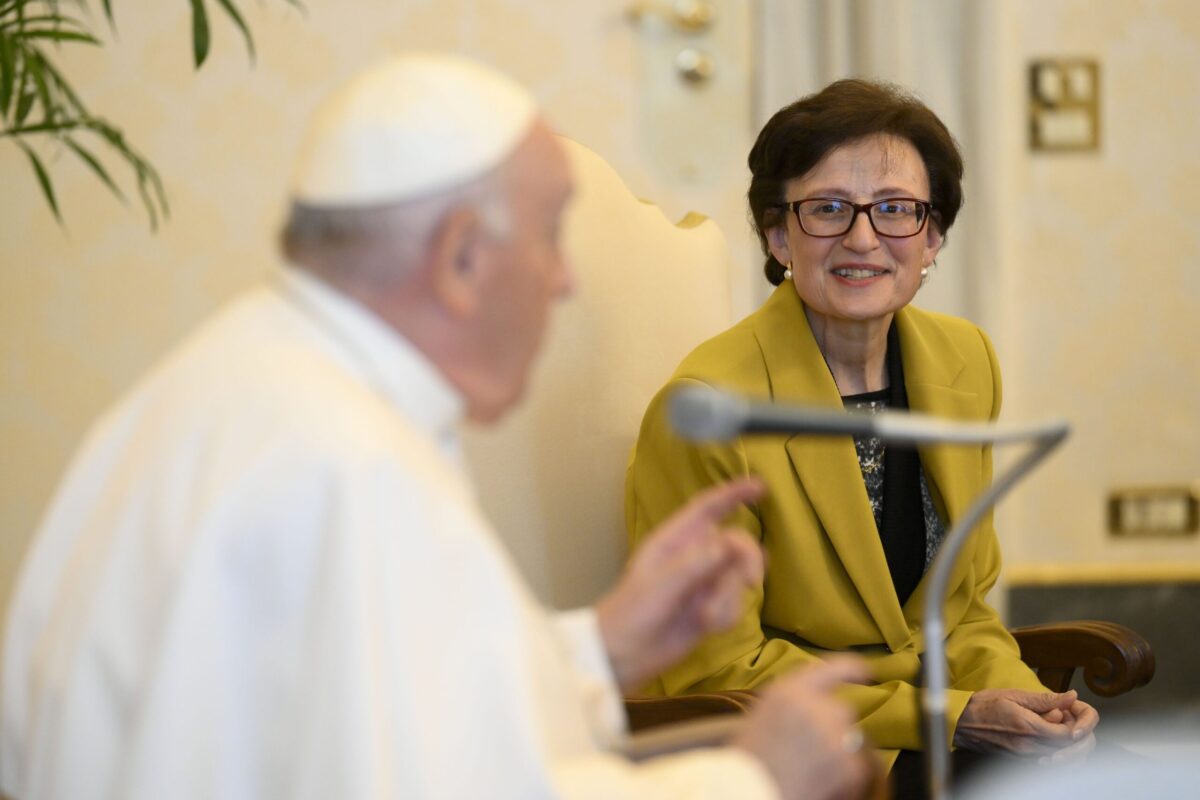By Cindy Wooden, Catholic News Service
VATICAN CITY (CNS) — Suffering and death are human realities that raise questions people need to ask themselves, Pope Francis said.
“Illness and finitude in modern thinking are often regarded as a loss, a non-value, a nuisance that must be minimized, countered and nullified at all costs,” the pope said. “One does not want to ask the question about their meaning, perhaps because one fears their moral and existential implications.”
Yet, he said, quoting St. John Paul II, “no one can escape the search for such a ‘why.'”
Pope Francis shared his reflections on the importance of exploring the meaning of human frailty in a text he handed to members of the Pontifical Biblical Commission when he met the group at the Vatican April 20. The Vatican press office did not say what, if anything, the pope spoke about instead of reading his prepared text.
Biblical scholars on the commission explore topics in Scripture studies and interpretation as expert advisers to the Dicastery for the Doctrine of the Faith. The focus of their April meeting was on “sickness and suffering in the Bible.”
Pope Francis told them the theme corresponds “to a concern that I hold particularly close to my heart,” and that is the importance of people thinking about the meaning of suffering and death.
“Even a believer can sometimes falter when faced with the experience of pain,” he said.
“It is a frightening reality that, when it barges in and attacks, can leave a person distraught, even to the point of shattering his or her faith,” the 86-year-old pope wrote. “The person then is faced with a crossroads: he or she can allow suffering to lead to withdrawal into self-doubt to the point of despair and rebellion; or he or she can accept it as an opportunity for growth and discernment about what really matters in life until the time one encounters God.”
The scriptural view of suffering, he said, is precisely that of growth and discernment.
In the Hebrew Scriptures, the pope noted, those who are sick turn constantly to God, trusting in God’s protection, praying for healing and, in times of trial, acknowledge their failings and promise to convert.
The New Testament, he said, is filled with examples of Jesus healing the sick and restoring people to life.
The miracles “reveal his divine identity, his messianic mission and his love for the weak to the point of identifying with them when he says, ‘I was sick and you visited me,'” the pope said.
But his identification with the sick and suffering culminates in the Passion, “so that Christ’s cross becomes the sign par excellence of God’s solidarity with us and, at the same time, of the possibility for us to join in his saving work,” the pope said. He cited Colossians 1:24: “Now I rejoice in my sufferings for your sake, and in my flesh I am filling up what is lacking in the afflictions of Christ on behalf of his body, which is the church.”
Suffering also “teaches us to live human and Christian solidarity, imitating God’s style of closeness, compassion and tenderness,” the pope said, because it is a call to be close to those in pain and to do what is possible to alleviate it or at least let the sick person know he or she is not alone.






